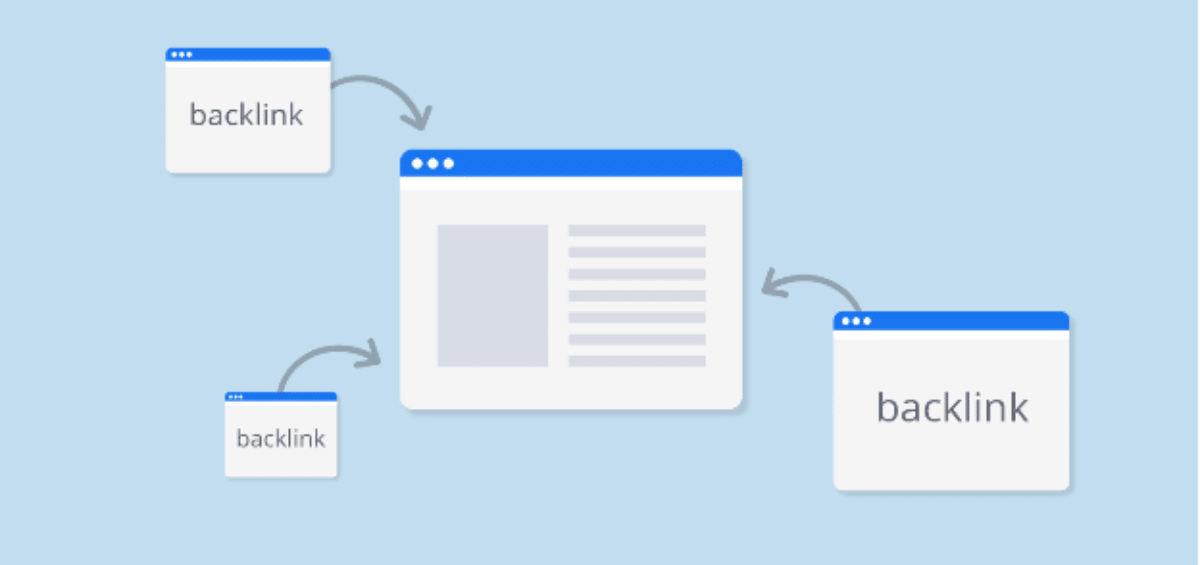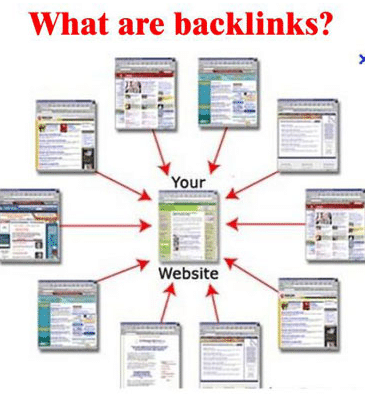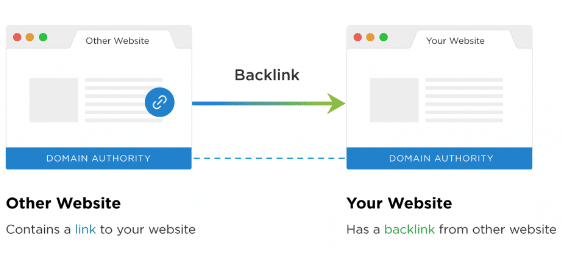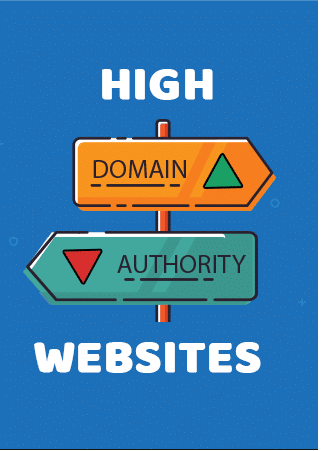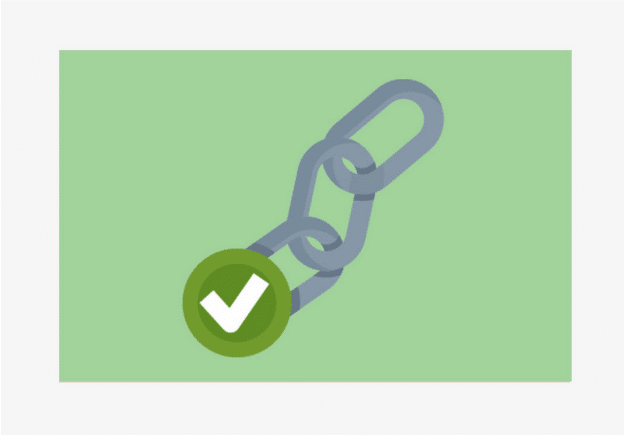You’ve probably heard of them before, but what are backlinks? You’re probably aware they are an essential element of high search engine rankings. However, do you know how they work and why they improve the value of your site? Let’s take a close look at backlinks. With a thorough understanding, it becomes possible to create an effective content distribution plan that drives organic traffic.
What Are Backlinks?
Backlinks are sometimes referred to as inbound links, but the term generally refers to links that lead back to your site from another website.
Having a good amount of quality backlinks pointing to your site is beneficial in many ways. Although backlinks have always played a major role in search engine rankings,they play an even larger role today in securing top-ranking spots on search engine results pages (SERPs).
Why Are Backlinks Important?
From a search engine optimization (SEO) standpoint, backlinks add considerable value to a website. All factors being equal, a website that has a good number of high-quality backlinks has a much better chance of getting a high search engine ranking than sites that have fewer backlinks.
Think of a backlink as a sort of “upvote” given by one website to another. Receiving a backlink from another site is essentially a vote of confidence, indicating high regard for your content, your products or services, or your expertise in a particular niche. Therefore, every backlink that you earn increases your site’s value and relevance as far as search engines are concerned. Get enough high-quality backlinks on your site and your chances of getting a high search engine ranking increase significantly.
Backlinks provide tangible benefits to site users as well. By making it easier for site users to find useful and relevant information, backlinks enhance the value of a website’s content. Higher value content results in a more rewarding and more satisfactory user experience, which in turn increases the chances of converting site visits into actual sales.
Backlink Best Practices
High-Authority Domains
Not all backlinks are created equal. By far, the most valuable backlinks are those that originate from trustworthy and high-authority sites. These high-authority sites generally have quality backlinks pointing to them and enjoy a healthy stream of traffic. When you get backlinks from these sites, it is almost as if your site is sharing some of their search engine rank-ability. Search engines will likely consider your site to be equally reputable and worthy of a high SERPs ranking since you’re sharing a connection with an established website.
Just as a high-authority site can boost your own site’s credibility, a low-authority domain can hinder your website’s ranking potential. Even if you don’t resort to the dubious measure of harvesting links from link farms (which will almost certainly get your site blacklisted by Google), simply being linked by a low-authority site still hurts your site’s reputation. Search engines may even flag your site as spammy, in which case you can pretty much say goodbye to your organic traffic.
Anchor Text
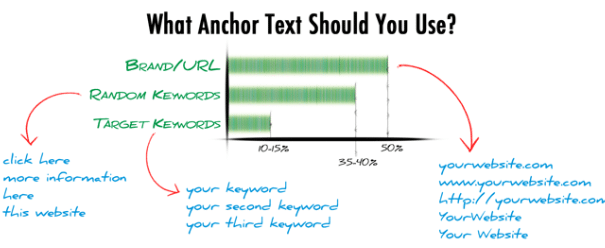
Let’s say for example that your brand sells marketing software. In one of your blog postings you highlight the advantages of using marketing automation tools, and your target keyword is“marketing automation tools.” To include a backlink to a high-authority site, you decide to link to an article on Forbes that discusses the benefits of marketing automation tools. Below are good and bad examples of including a backlink with proper anchor text.
You may be tempted to to do the following:
However, in the example above, you are helping the Forbes site rank for a keyword that you are targeting. That’s why simply using the “this article on Forbes” anchor text serves as the better choice.
You most definitely want to ensure that your target keyword includes a link in your blog post, but ideally it will be an internal link to your own site.
The only time you want to include complete URLs as the anchor text is when you are promoting your own website or brand. Here’s an example:
Here’s a little more information on creating proper anchor text.
With SEO backlinks, your goal is to provide users with information on the content of the destination site.
SEO-friendly anchor text should have the following qualities:
- Be fairly short and descriptive
- Be relevant to the page that they point to
- Not be stuffed with keywords
- Be fairly unique and distinctive
You probably won’t have any say concerning the anchor text used by other sites that link to your pages. However, you will want to make sure that the anchor text on your site conforms to the above criteria.
Target Pages and Internal Linking
For new website owners, one apparent benefit of backlinks is that they lead users from another domain directly to their product page, increasing their chances of making a sale. But this is not usually the case with links coming from high-authority sites. Rarely, if ever, will high-authority domains link directly to your product page. Unless you are paying them to link to your site, it doesn’t benefit other sites to link to your product pages and it makes them come across as spammy, which can hurt their own site rankings.
In most cases, high-authority sites will want to link to pages that provide added value for their users. They are more likely to link to your site if you provide additional information, statistics or content that is somehow relevant to their focus.
Of course, nothing is stopping you from creating links that lead to product pages within your domain. You could even do so from your own high-value pages that are backlinked from high-authority sites. Doing so enables you to draw traffic to your product pages and still get the valuable backlinks you need from high-authority sites.
How to Get Backlinks
Getting backlinks from high-authority sites is one of the most challenging obstacles you will face. One of the most important things you can do is create high-quality content that other sites will want to link to. Your text content should provide value to readers, preferably with information they can’t get from any other site.
Of course, this could pose a challenge, particularly given the presence of so many other authoritative sites in almost every niche. With so many experts and well-established sites out there, it can be difficult to stand out and make an impression.
One way around this is to present your information differently. You can adopt a more creative approach and present your content in infographics or chart form, which many high-authority sites consider link-worthy. You can even develop unique video content, which has a high backlink appeal.
Don’t discount the benefits of networking either. One of the more interesting aspects of link building is the willingness of high-authority figures to share time and resources with up-and-coming site owners, even if they belong to the same niche. Try engaging with recognized industry leaders in your niche on social media or even making a pitch for a guest blog post. You’ll be surprised at how many are willing to host links to your site if they feel that you have something to bring to the table.
Don’t rely solely on the quality of your content to generate backlinks. Creating quality content is essential for getting quality backlinks from high-authority sites; no argument there. But in most cases, a sustained and focused approach to link building is necessary to get the volume and quality of backlinks that you need.
Probably the easiest way to get backlinks is to let a professional agency get them for you. Contact IGW today to let the experts handle your backlinks for you.

